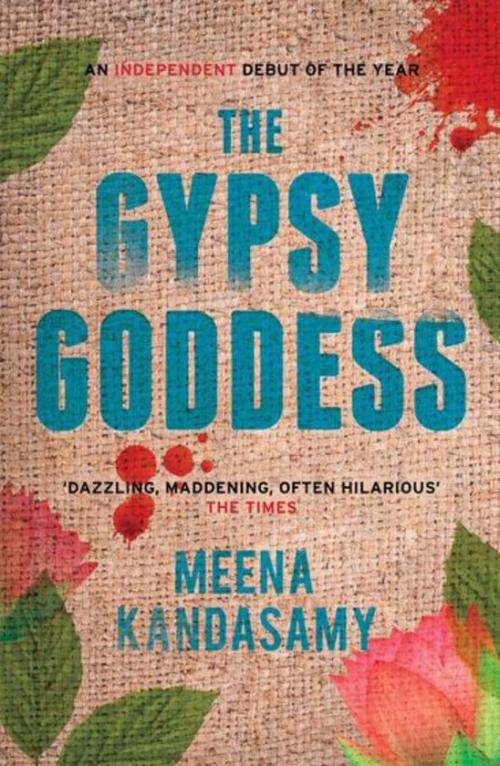
This isn’t an easy read by any measure. If you are looking for a book that rests your mind, don’t touch it for it’ll only agitate .If you are picking up this book as a means to escape the dull, boring , prosaic existence of yours, I would suggest you stay away. With this book, you don’t escape, you are deeply entrenched into the realities that have shaped the current format of the nation.
The narrative challenges your sense of symmetry. We are so accustomed of leading a monochrome life, walking on a straight line that the labyrinthine of voices confuse us. The singularity of thought is so deeply ingrained in us that the multiplicity of them makes it hard for us to remain afloat. The book jolts you out of your cocoon of convenient numbness. You are perplexed by the not so graceful dance of the words. You are uncomfortable. You want to give it up. Give up the book for the lack of a coherent plot. Which book meanders endlessly and ungracefully around the reader, tantalizing her, giving her a peek of the story but never fully revealing the plot ? For the entire first two chapters!
You still read on because it has been recommended by a woman who spoke with such passion and tenderness about it that you were compelled to buy and add it to the pile of books that just doesn’t stop to grow. Like the beanstalk in Jack and the Beanstalk.
Much like the beanstalk the book grows on you and well, it just keeps growing on you till you are in its firm grip. You become part of a historical event in such way that it resides in you and no amount of shaking will help it getting rid of it. It’s only under two situations that an obvious is not obvious. First, when you are the obvious. In that case you obviously can’t see it. Or you can’t see it because your eyes, both physical that that of the mind are shut. Caste is not an obvious for most of us. It’s a 1950 reality and has no relevance in 2016. This book, will force you to take your blinkers off and see things as they are and not as they ought to be. The brutal death of 42 ( plus 2) landless labourers , women and children will remind you that caste struggle exists.Still. That in India caste and class are hand in glove. Like a faithful puppy, class follows its master - class. You would read on, helplessly and with a rage in your heart. You will read, you will cry , put the book down, pace angrily in the room, stare blankly at wall in front of you and pick up the book again. The cycle continues till you finish it. Nada. Finito. End. The Gypsy Goddess is a macabre dance of death that haunts you for days and weeks. Seeps inside every crevice in your body and mind. It clings on to you like a second skin, rotting and begging to be discarded.
You become one with the dead. No, not your own death. We don’t fear our death as much as we fear the deaths of our loved ones. You see the face of your mother or your beloved in the charred, dismembered bodies that are truncated by the fire that burnt them. For hours in a small hut and behind a closed door. You are not you, you are the character or perhaps that paddy field which gave coverage to a few people who escaped the fire. You are in Kilvenmani, the village where the living are dead and the dead outlive the living by occupying their memories for eternity. The morning paints the sky with a confusion of colours where orange flows into red and red into yellow. Death is its opposition- brutal and crushing. Pain has no colour , it’s just vacant like a barren paddy field. Since you are now a part of Kilvenmani, look into the eyes of the living. Blankness stares at you till you avert your eyes with shame. You can’t get out now. You are there and you die a little every time you stare at a pair of eyes. Eyes that have lost their light forever.
You question in a righteous way about the apathy of the courts. Furious at the lack of basic intelligence. But when have courts been known for their fairness and sens of justice? You are incandescent when the judge states that a high caste cannot do a cowardly act of setting fire to a hut of a low caste person. What is this nonsense logic you ask yourself. But then you remember Bhavri Devi, a middle aged low caste woman who was gang raped by the high caste people. All acquitted by the court. Why you ask me? Ofcourse because how can a high caste who cannot bear the shadow of the low caste, rape them?! And that to repeatably! It wasn’t 1968, the setting of the book, it was 1989 when Bhavri Devi was violated. Yet the caste triumphed raising its ugly head. But I digress! My mind is restless and has known no peace since I picked this book up.
Go ahead, read the Gypsy Goddess and let the sadness and apathy embrace you like a lover.If you come alive and unscathed, you were never meant to read the book.










Add new comment